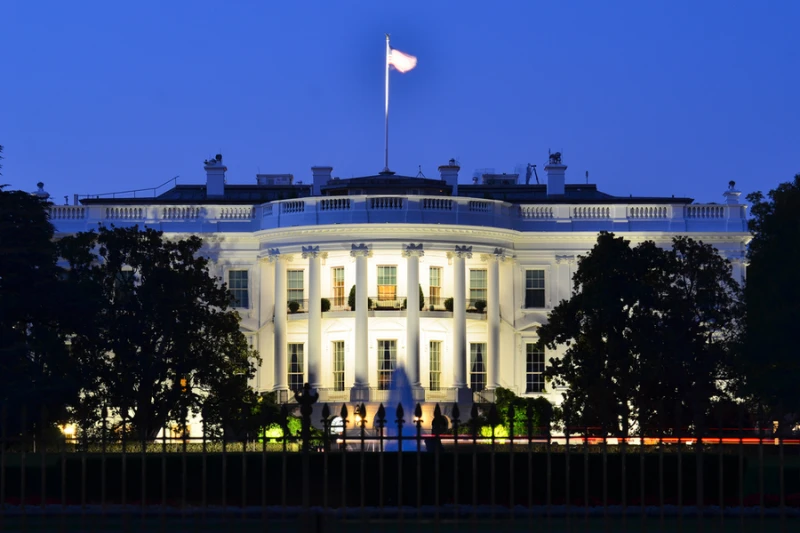Pro-life groups praise Trump plan to cut taxpayer funds for Planned Parenthood

 null / Orhan Cam/Shutterstock
null / Orhan Cam/Shutterstock Washington, D.C. Newsroom, Mar 26, 2025 / 17:45 pm (CNA).
Several pro-life organizations are praising President Donald Trump’s administration for plans to freeze tens of millions of dollars in federal taxpayer money that was intended in part for the country’s largest abortion supplier, Planned Parenthood.
Officials are mulling an immediate freeze of $ 27.5 million from the Department of Health and Human Services (HHS) Title X Family Planning Services Program for Planned Parenthood and other organizations that are yet to be named.
Congress allocated more than $ 286 million for funding of the Title X program for the current fiscal year. The expected freeze would block about $ 20 million that was expected to support Planned Parenthood affiliates, according to a Tuesday report from the Wall Street Journal.
Federal law prohibits direct federal taxpayer funding for most abortions but allows funds for abortion clinics if the money is spent on other services.
This move would not end all of the federal taxpayer money Planned Parenthood receives. The organization and its affiliates get hundreds of millions of dollars in taxpayer funding annually.
Planned Parenthood received more than $ 1.75 billion in federal tax money from a variety of sources between 2019 and 2021, according to a 2023 Government Accountability Office report.
Pro-life groups signal support
The news prompted positive feedback from several pro-life organizations.
Kristan Hawkins, the president of Students for Life Action, told CNA the move is a “great step forward in defunding Planned Parenthood.
“Rather than helping people with families, Planned Parenthood sells never having one and abuses Title X funds to market their real product — abortion,” Hawkins said. “… The Pro-Life Generation supports every effort that tells Planned Parenthood to go fund themselves.”
Joseph Meaney, a senior fellow at the National Catholic Bioethics Center, told CNA that the report is “wonderful news” and said it is “scandalous that Planned Parenthood managed to obtain hundreds of millions of dollars in government funding annually for many years.”
“That organization has from its inception trampled on the human dignity of its ‘clients’ and violated the natural moral law regarding sexual morality and the right to life,” Meaney added.
Carol Tobias, the president of National Right to Life, told CNA the group is “extremely grateful” that the administration plans to cut funding for an organization that performs hundreds of thousands of abortions annually.
“Americans do not want their money being used to end the lives of innocent preborn children,” she said.
“We are also very encouraged that the president has said he will look into Planned Parenthood as an alleged supplier of aborted baby parts,” Tobias said. “Abortion is gruesome and the government should not be using taxpayer funds to prop up a business involved in performing abortions and promoting the deaths of preborn babies.”
Susan B. Anthony Pro-Life America published a series of posts on X praising the plan, saying that “abortion is not family planning” and criticizing the standards of care at Planned Parenthood facilities.
Planned Parenthood Federation of America did not respond to a request for comment from CNA. However, the organization’s president, Alexis McGill, told the Journal that this plan is allegedly part of an effort to shut down its abortion clinics.
“The Trump-Vance-Musk administration wants to shut down Planned Parenthood health centers by any means necessary, and they’ll end people’s access to birth control, cancer screenings, STI testing and treatment, and more to do it,” McGill claimed.
The pro-life movement has had a hot-and-cold relationship with Trump over the course of his political career.
Trump has delivered several wins for the pro-life movement, including the nomination of three Supreme Court justices who voted to overturn Roe v. Wade, along with several pardons of pro-life activists who were previously in prison.
However, Trump has opposed new federal restrictions on abortion, he has been reluctant to use executive power to restrict access to the abortion pill mifepristone, and he signed an executive order that begins the process of lowering costs for in vitro fertilization (IVF) — all of which have frustrated many pro-life advocates.
Cuts are part of broader diversity targeting
According to the Wall Street Journal, the administration’s expected funding freeze for family planning grants is part of the president’s efforts to prevent tax money from funding diversity, equity, and inclusion (DEI) initiatives.
On his first day in office, Trump signed an executive order to halt all federal DEI programs, which he called “illegal and immoral discrimination programs.” The executive order also directs departments and agencies to align its contracts and grant funding with the administration’s position on DEI.
“Americans deserve a government committed to serving every person with equal dignity and respect, and to expending precious taxpayer resources only on making America great,” the executive order read.






